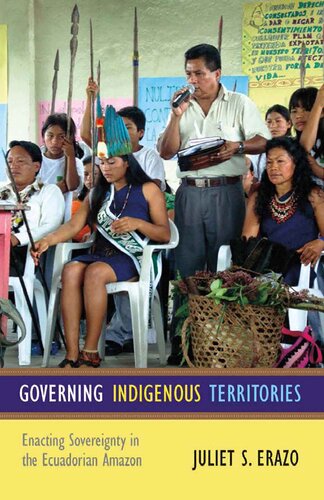

Most ebook files are in PDF format, so you can easily read them using various software such as Foxit Reader or directly on the Google Chrome browser.
Some ebook files are released by publishers in other formats such as .awz, .mobi, .epub, .fb2, etc. You may need to install specific software to read these formats on mobile/PC, such as Calibre.
Please read the tutorial at this link: https://ebookbell.com/faq
We offer FREE conversion to the popular formats you request; however, this may take some time. Therefore, right after payment, please email us, and we will try to provide the service as quickly as possible.
For some exceptional file formats or broken links (if any), please refrain from opening any disputes. Instead, email us first, and we will try to assist within a maximum of 6 hours.
EbookBell Team

5.0
110 reviewsGoverning Indigenous Territories illuminates a paradox of modern indigenous lives. In recent decades, native peoples from Alaska to Cameroon have sought and gained legal title to significant areas of land, not as individuals or families but as large, collective organizations. Obtaining these collective titles represents an enormous accomplishment; it also creates dramatic changes. Once an indigenous territory is legally established, other governments and organizations expect it to act as a unified political entity, making decisions on behalf of its population and managing those living within its borders. A territorial government must mediate between outsiders and a not-always-united population within a context of constantly shifting global development priorities. The people of Rukullakta, a large indigenous territory in Ecuador, have struggled to enact sovereignty since the late 1960s. Drawing broadly applicable lessons from their experiences of self-rule, Juliet S. Erazo shows how collective titling produces new expectations, obligations, and subjectivities within indigenous territories.
Tags: Native American Studies, Latin America Studies, Anthropology, History, South America, Ecuador, Indigenous Studies